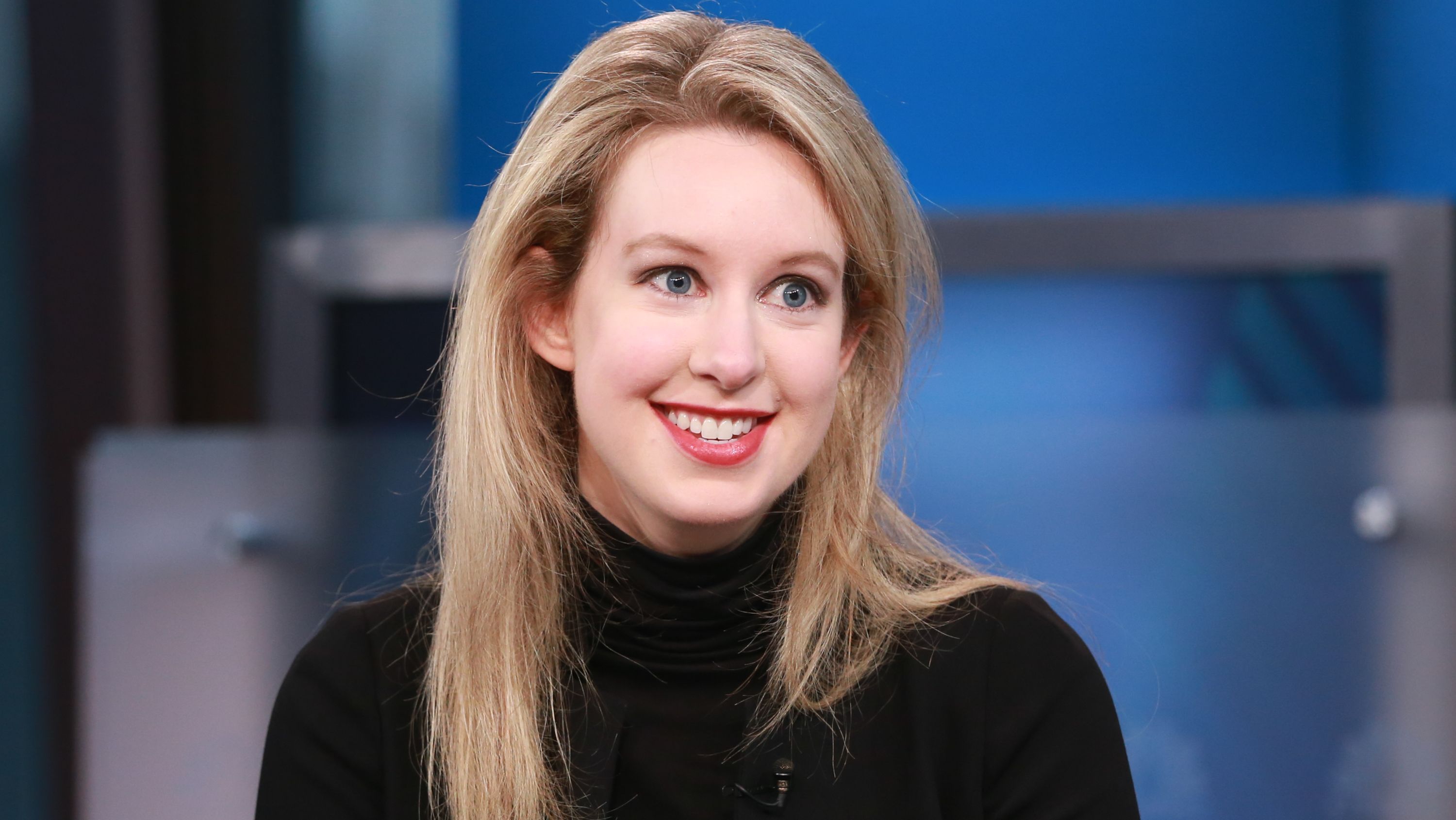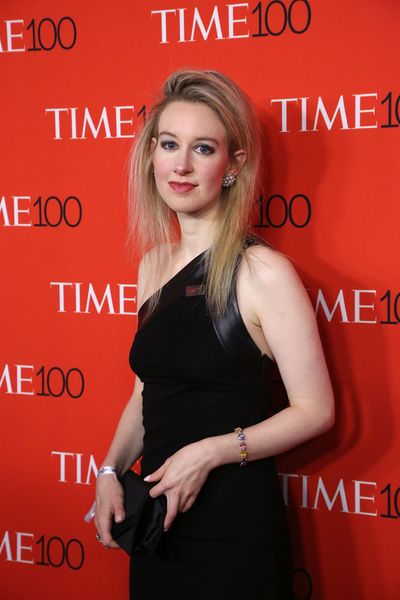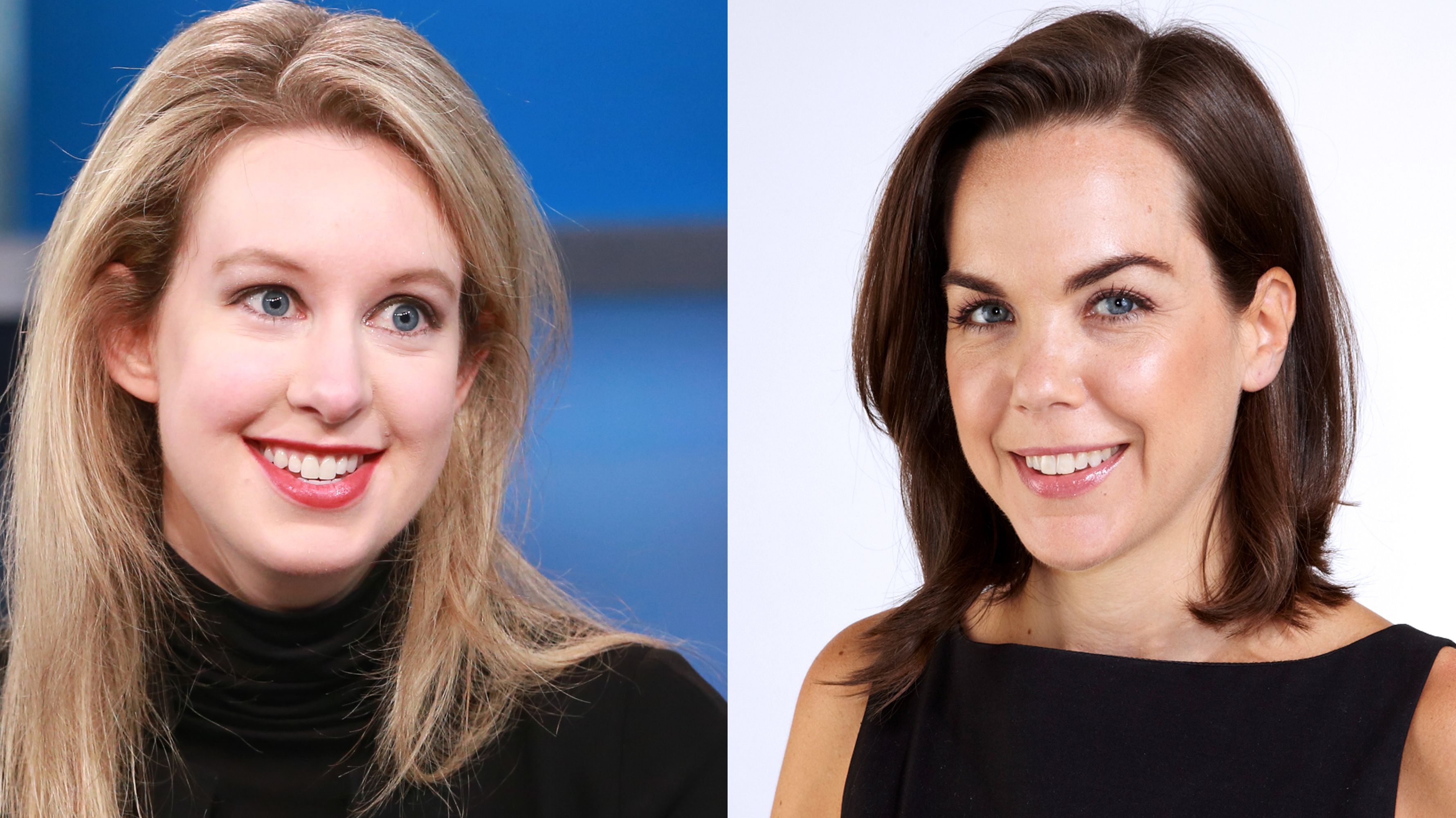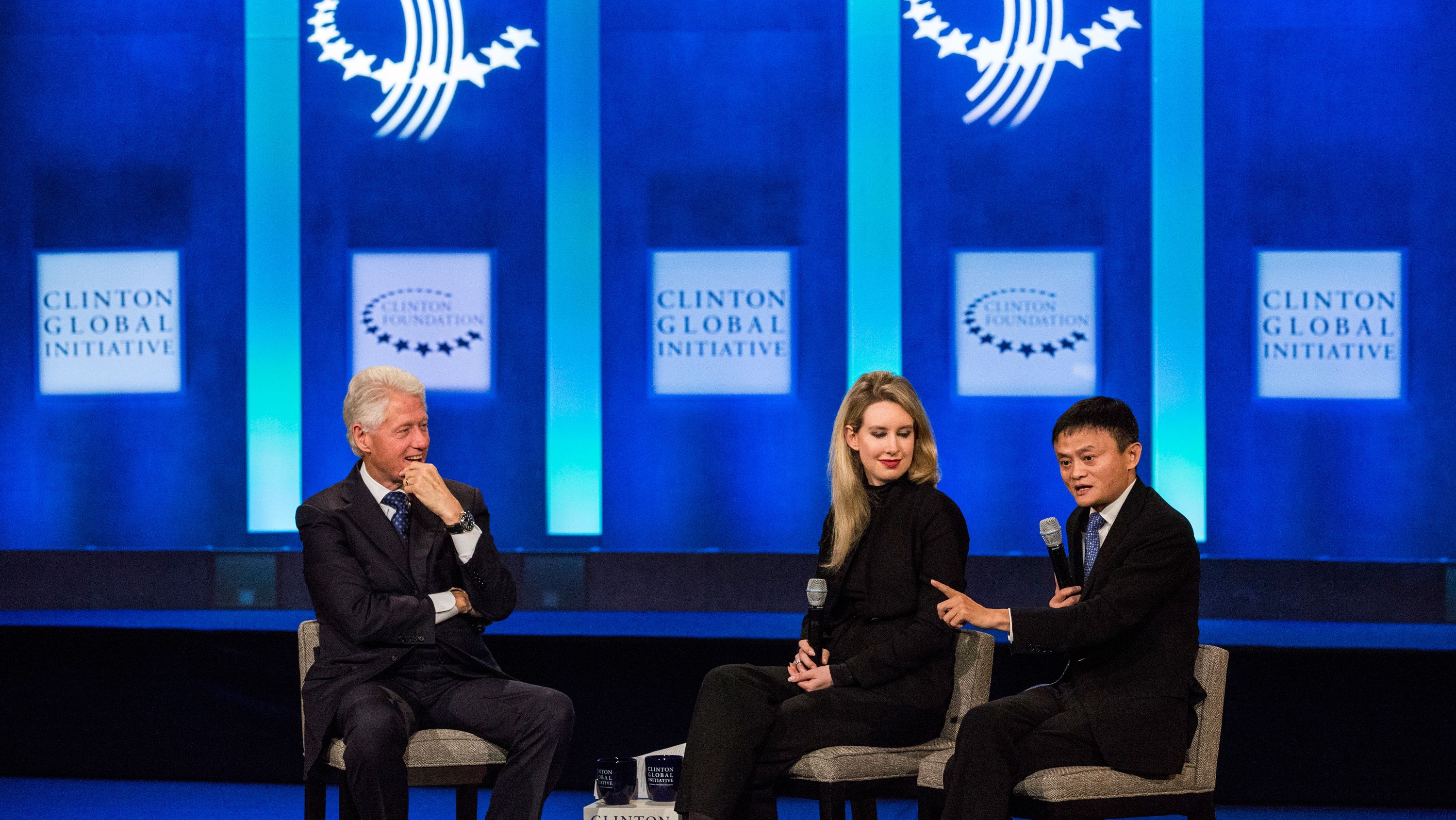Elizabeth Holmes Is a Tragic Figure
The Inventor: Out for Blood in Silicon Valley (premiering tonight on HBO) asks some important questions about the disgraced CEO.

In the elevator up to the New York City premiere of Alex Gibney’s latest documentary, The Inventor: Out for Blood in Silicon Valley (premiering Monday, March 18, on HBO), I turned to my friend and told her, “I'm so excited, Elizabeth Holmes is my favorite scammer.”
We’re at a time in American history when we respect the scamming hustle. The Summer of Scam last year was such a particular, semi-ironic moment in the zeitgeist, and I was looking forward to seeing Holmes’s story—of a promising, Steve Jobs–cribbing tech entrepreneur who conned companies into spending millions of dollars on a “revolutionary” blood-testing product that didn’t work—laid bare. But the way Gibney presents Holmes's story upended a lot of my conceptions about the woman at the center of it. Do I love this scammer, or do I resent her, or do I feel very bad for her? Maybe all three?
Do I love this scammer, or do I resent her, or do I feel very bad for her? Maybe all three?
For the unfamiliar—and if you're in that camp, definitely read John Carreyrou’s excellent 2018 book on the subject, Bad Blood: Secrets and Lies in a Silicon Valley Startup—Elizabeth Holmes was something of a tech world It Girl in the mid-aughts. It was a time when Silicon Valley startups and their precocious CEOs were not simply hinting at their own world-saving capabilities, but actively convincing investors that they could revolutionize the way humans eat, travel, sleep, read—everything—so long as they could get the capital to make it possible. Holmes seemed right at home among these newly-minted captains of industry, with her black turtlenecks and her affected baritone and her wide, unblinking eyes. And her pedigree supported her mystique: She founded Theranos when she was a 19-year-old Stanford drop-out because, she claimed, she wanted to create a compact blood-testing device that could test for hundreds of markers simultaneously, so “no one ever has to say goodbye too soon.”
Holmes raised so much funding that Theranos was valued at $9 billion as recently as 2015. Much of that money came from heavy-hitters like Rupert Murdoch and the Walton Family, of Wal-Mart fame. Similarly, the Theranos board was stacked with a dizzying array of Washington insiders. Henry Kissinger was on there, as was former Secretary of Defense William Perry, and Senator Bill Frist. Holmes became the world's youngest self-made female billionaire, and Walgreens paid millions to partner with Theranos to have their blood-testing technology in-store.
The problem with all that? Despite years of research, Theranos had still not figured out how to make Holmes’s dream actually work. As Gibney’s doc shows, there was so much testing material that needed to be contained in a box only a few feet wide, called the Edison, that there was almost no way to make sure the samples were correctly tested without contamination. That didn’t stop Holmes and her team from not only pushing for more capital, but also threatening with scary legalese and an intimidating legal team anyone who seemed capable of going public with the truth (an aspect of the story that makes for some of the most thrilling scenes in The Inventor).

When John Carreyrou’s Wall Street Journal article came out in October 2015, citing whistleblowers who doubted the ability of Theranos’s central product to do any of what the company claimed, everything came crashing down. Now, just a few years later, the company has shut down and the SEC indicted Holmes and her business partner, former Theranos COO Ramesh "Sunny" Balwani, on charges of massive fraud. (She pleaded not guilty last year and is awaiting trial.)
I’ll be honest: I was nervous about how Holmes would be portrayed in The Inventor. Without a doubt, she was deceitful and her lies may have risked the lives of the people who relied on her blood-testing. But she was also one of the few female CEOs in an industry noted almost as much for its lack of diversity as its innovation, and while that obviously absolves her of nothing, I guess I just hoped that Gibney’s portrayal wouldn't suggest that her being a woman had anything to do with her crimes. Anybody can scam, that was last summer's big takeaway.
Get exclusive access to fashion and beauty trends, hot-off-the-press celebrity news, and more.
RELATED STORY

And I was relieved to find that Gibney did nothing of the sort. Much is laid out in The Inventor about Holmes's motivations for starting Theranos and the lengths she went to keep it running—the threats to former employees, the denial on the part of Holmes and her inner circle about their product's functionality, the lies and publicity-seeking and secrecy at Theranos—but what has stayed with me since I watched it is how much, at least in the beginning, Holmes reminded me of all the other tech CEOs overpromising their companies' capabilities. She didn’t stick the dismount, and then spiraled into a pattern lies when it all started to come undone, but just because she was sloppier than her peers, does that mean she was worse?
Tech is founded on the impossible dream, but Holmes didn't readjust when reality got in the way.
It’s hard to build surprises into documentaries because most of the people willing to sit through two hours of nonfiction storytelling already know the ending. But I was stunned to see just how much of the speculation involved in funding tech companies is based on a promise, rather than a realized product—and that ended up altering my impression of Holmes. Eventually, with enough capital and stalling and tweaking, companies can sometimes deliver on their initial idea. That's not what happened to Theranos, and Holmes did appear to ignore a lot of good advice given to her very early on, from medical professionals and scientists and professors alike. She had hubris, and she wanted to complete the thing that she started regardless of how likely it seemed. Tech is founded on the impossible dream, as Gibney's documentary sees it, but Holmes didn’t pull back or readjust when reality got in the way. She doubled down.
But rather than looking like the villain I thought she was, Holmes comes across here as kind of, well, pitiable. She may have started with perfectly good intentions, but became “a zealot” of her own cause, as one interview subject in the documentary posits.

As a result, the questions The Inventor asks have less to do with Holmes than they do with Silicon Valley writ large. Namely, who are these revolutionary ideas really aiming to benefit? After all, the world could use some saving right now and Big Tech has been uncharacteristically quiet about its potential to help, and that's when it hasn't been actively making things worse. The companies that were once industry darlings are in peril—Facebook is a bit of a debacle, Twitter is a cesspool, Uber is canceled—and lately all of the hopes we may have put into Silicon Valley over the last decade seem misguided. What were those hopes even based on? Were they just unfulfillable promises backed by sleek marketing?
So maybe what makes Holmes so compelling, then, isn't her apparent arrogance or some intense commitment to scamming her investors and customers. Instead, her story embodies a lot of the suspicions I have about tech anyway: Holmes wasn't some dedicated criminal, she was just artifice in a black turtleneck. And isn't that kind of sad?
The Inventor: Out for Blood in Silicon Valley premieres Monday, March 18, on HBO and on Tuesday, March 19, on HBO Go.
For more stories like this, including celebrity news, beauty and fashion advice, savvy political commentary, and fascinating features, sign up for the Marie Claire newsletter.
Cady has been a writer and editor in Brooklyn for about 10 years. While her earlier career focused primarily on culture and music, her stories—both those she edited and those she wrote—over the last few years have tended to focus on environmentalism, reproductive rights, and feminist issues. She primarily contributes as a freelancer journalist on these subjects while pursuing her degrees. She held staff positions working in both print and online media, at Rolling Stone and Newsweek, and continued this work as a senior editor, first at Glamour until 2018, and then at Marie Claire magazine. She received her Master's in Environmental Conservation Education at New York University in 2021, and is now working toward her JF and Environmental Law Certificate at Elisabeth Haub School of Law in White Plains.
